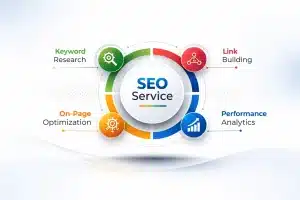Customer loyalty is the primary goal behind most modern marketing efforts. Every year, businesses invest significant budgets into campaigns designed to attract, engage, and retain customers, with the expectation that loyalty will drive long-term profitability. From branding and advertising to personalization and customer experience initiatives, the ultimate objective is to create lasting relationships that encourage repeat business.
Extensive research on customer loyalty exists both within and outside the United States. For instance, studies indicate that approximately 84% of U.S. adults consider themselves loyal to their preferred retailers, while 82% report loyalty to specific brands. At first glance, these numbers suggest that loyalty remains strong in today’s market.
Why Companies Need Customer Loyalty
Customer loyalty plays a decisive role in determining which brand a customer chooses and continues to support in a highly competitive market. When customers are loyal, they consistently favor one brand over alternatives, even when competitors offer lower prices or aggressive promotions. This makes customer loyalty one of the most valuable strategic assets a company can build.
Businesses actively strive to increase customer loyalty because of the long-term advantages it delivers across revenue, marketing efficiency, and brand stability.
Customer Loyalty Drives Sustainable Profit Growth
One of the most important benefits of customer loyalty is its impact on profitability. Loyal customers tend to purchase more frequently, spend more per transaction, and remain customers for longer periods of time. While this benefit is often realized over the long term rather than immediately, it creates a predictable and stable revenue stream that reduces financial risk. Over time, this leads to higher customer lifetime value and stronger overall business performance.
Loyal Customers Become Brand Promoters
Customers who develop loyalty to a brand are far more likely to promote it voluntarily. They share positive experiences through word-of-mouth, online reviews, social media mentions, and referrals. This type of advocacy is extremely valuable because it is authentic, unpaid, and highly trusted by potential customers. In many cases, loyal customers act as informal brand ambassadors, helping businesses reach new audiences without additional advertising costs.
Retention Costs Less Than Acquisition
Retaining existing customers requires significantly less effort and investment than acquiring new ones. New customer acquisition involves advertising, promotions, onboarding, and trust-building, all of which are costly and time-consuming. In contrast, loyal customers already trust the brand and understand its value, making them easier to engage, upsell, and retain. This efficiency allows companies to allocate resources more effectively while maximizing returns.
Loyalty Builds Competitive Protection
Customer loyalty also serves as a defensive advantage. When customers feel emotionally connected to a brand, competitors have a much harder time luring them away. Loyal customers are less sensitive to price changes and less influenced by competitor messaging. This protection is especially important in crowded markets where products and services appear similar on the surface.
Stronger Feedback and Continuous Improvement
Loyal customers are more willing to provide honest feedback and constructive criticism. This feedback helps companies improve products, services, and customer experience. Businesses that listen and respond to loyal customers strengthen relationships even further, creating a cycle of trust, engagement, and improvement.
In today’s market, customer loyalty is no longer optional. It is a core driver of growth, profitability, and resilience. Companies that invest in loyalty-building strategies gain not only repeat customers but also long-term advocates who help the brand grow organically and sustainably.
Excessive Emphasis on Customer Loyalty
While customer loyalty is undeniably important, the way many companies pursue it is often misguided. An excessive emphasis on “delighting” customers can distract businesses from what actually builds lasting loyalty. Many firms operate under the assumption that if customers are delighted, they will automatically remain loyal. However, research and real-world behavior show that this belief is flawed.
Studies show that delighting customers does not build loyalty; however, customer loyalty is actually built by reducing customer’s efforts. This insight is strongly supported by research published by Harvard Business Review, which explains that minimizing friction matters more than delighting customers.
For example, customers do not always choose airlines that provide the most luxurious service. Instead, they quickly abandon airlines that create friction through delays, poor communication, or complicated problem resolution. Loyalty is often driven less by exceptional experiences and more by the absence of frustrating ones. When companies make it easy for customers to resolve issues, access support, or complete transactions, trust and repeat behavior naturally follow.
Another key factor influencing customer loyalty is habit and familiarity. Customers frequently make automatic purchasing decisions rather than carefully evaluating every option. They tend to buy products and services that are familiar, easy to access, and require minimal effort. This preference explains why “easy-to-buy” products often outperform technically superior alternatives. When customers already know how a product works and feel comfortable using it, they are less inclined to switch, even when competitors exist.
Once a customer has successfully purchased a product or service and had a satisfactory experience, they are significantly more likely to repurchase it. At the same time, they become less likely to explore competing options. This behavior reinforces loyalty not through emotional attachment alone, but through convenience and confidence.
Facebook is a strong example of how familiarity and ease-of-use contribute to long-term customer loyalty. The platform did not become dominant solely because it delighted users with features. Instead, it leveraged habit formation, intuitive design, and low effort interaction. Over time, users became deeply familiar with the platform, making it difficult to leave even when alternatives emerged.
Ultimately, sustainable customer loyalty is built not by trying to impress customers at every interaction, but by removing obstacles, simplifying experiences, and making it effortless for customers to get what they need. Companies that focus on reducing friction, increasing clarity, and reinforcing familiarity are far more likely to earn loyalty than those chasing short-term delight.
Conclusion
In conclusion, customer loyalty is not actually what drives sales; rather, familiarity and ease of use do. Moreover, the emphasis on making customers delighted with a product or service is highly misplaced. Making customers delighted with a product or service does not make them loyal to the product or service. Firms can improve their sales and profit by devising effective means to remove obstacles in accessing or purchasing their products or services and make their brands familiar to their customers.






